Pew study: White evangelicals remain Trump loyalists
WASHINGTON (RNS)—President Donald Trump’s first 100 days in office were filled with change and controversy. And for many Americans, it appears too much.
The new president signed a record number of executive orders that included banning diversity efforts, feuded with some of the nation’s largest universities, launched high-profile deportations and imposed tariffs that sent the stock market yo-yoing.
More than half (59 percent) said they disapprove of how Trump has done his job, with a similar (59 percent) number disapproving of his tariffs, according to a new report from the Pew Research Center, based on a survey of 3,589 U.S. adults in early April.
More than half also disapprove of cuts to federal agencies (55 percent) and diversity, equity and inclusion programs (53 percent).
White evangelicals the exception
One group, however, seems to see his administration’s efforts more positively.
Nearly three-quarters (72 percent) of evangelicals indicated they approve of Trump’s job performance, as well as his actions on DEI programs (75 percent) and cuts to federal agencies (75 percent). About two-thirds (67 percent) approve of his tariff policies, according to the report released April 28.
“White evangelicals clearly stand out on Trump’s approval rating on various issues,” said Chip Rotolo, a research associate on Pew Research Center’s Religion and Public Life team. “Clear majorities of white evangelicals approve of what Trump and his administration are doing.”
Other faith groups appeared more skeptical. Seventy-three percent of Hispanic Catholics, 85 percent of Black Protestants and 74 percent of the religiously unaffiliated—also known as nones—said they disapproved of Trump’s performance.
White Catholics and white Protestants who are not evangelical essentially split down the middle, with 51 percent of Christians disapproving of Trump’s job performance, the report showed.
Pew Research also found Trump’s approval rating has declined by about 7 percentage points among several religious groups since his inauguration.
Faith groups mirror partisan divisions
Rotolo said the faith group results mirrored the nation’s partisan divides. Evangelicals predominantly identity as Republicans, while Black Protestants, nones and Hispanic Catholics lean Democratic.
Evangelicals also are more likely to find Trump trustworthy, according to the report. More than half (57 percent) said they trust the current president’s words more than those of past presidents.
By contrast, two-thirds of Black Protestants (65 percent) and nones (64 percent) said they trust Trump’s words less than those of other presidents, as do 45 percent of Catholics.
White evangelicals are also more likely than other Americans to see Trump administration leaders as ethical.
“Around seven in 10 white evangelicals rate the ethics of top Trump administration officials as good (35 percent) or excellent (34 percent),” according to the Pew report. “By contrast, among the public overall, most (62 percent) rate the ethics of the Trump administration as only fair or poor.”
White Catholics (54 percent) said they approved of Trump’s actions on DEI, as did 49 percent of white Protestants who are not evangelical. Majorities of those groups also approved of cuts to federal agencies, but they were split over tariffs.
By contrast, most Black Protestants indicated they disapprove of Trump’s actions on DEI programs (80 percent), cuts to federal agencies (84 percent) and Trump’s tariffs (82 percent). More than two-thirds of Hispanic Catholics and nones also disapprove of the Trump administration’s handling of those topics, according to the report.
White evangelicals key to Trump election
White evangelicals and other white Christians played a key role in Trump’s return to the White House, especially in swing states such as Pennsylvania and Wisconsin, and white evangelicals have long been among the president’s strongest supporters.
Overall, 59 percent of white Christians approve of Trump’s job performance, while 40 percent disapprove, according to additional analysis from Pew. By contrast, most Black Christians (83 percent) and Hispanic Christians (66 percent) disapprove.
And more than half (55 percent) of white Christians said Trump administration leaders have either excellent or good ethics, while only 10 percent of Black Christians, 28 percent of Hispanic Christians and 23 percent of the nones agreed.
White Christians overall are more likely to approve of Trump’s actions on DEI (62 percent), cuts to federal agencies (62 percent), and tariffs (56 percent) than other faith groups in the Pew report.
Despite their approval rate staying strong, Trump’s positive reviews among white evangelicals dropped from 78 percent in February to 72 percent in April, according to the report.
Among Black Protestants, his approval dropped from 18 percent to 10 percent. And among white Catholics, Trump’s approval dropped from 59 percent in February to 51 percent in April, while among the nones, his approval dropped from 33 percent to 26 percent.
“Both among the U.S. public as a whole and among major religious groups, Trump’s current approval ratings are on par with what they were around the same time in his first term (April 2017),” according to Pew.
Rotolo said Trump’s approval rating among white evangelicals remained high during his first term, staying at about 70 percent or above. The only exception came in January 2021, when Trump’s approval among white evangelicals dropped to 58 percent.
“Roughly three-quarters of white evangelicals approved of how Trump is handling his job as president at various points across his presidency,” he said. “It’s probably likely to stay about where it is unless something major happens.”
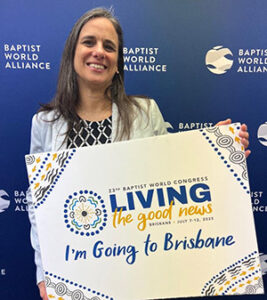

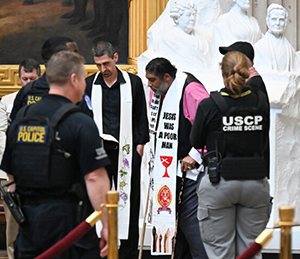
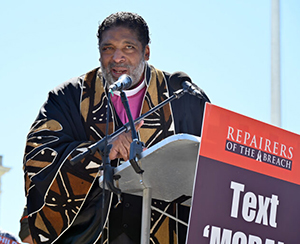

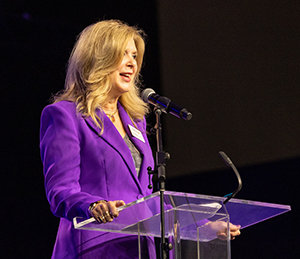
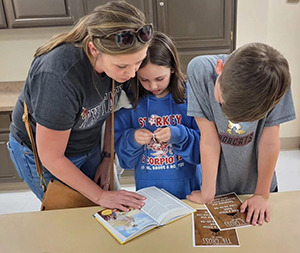
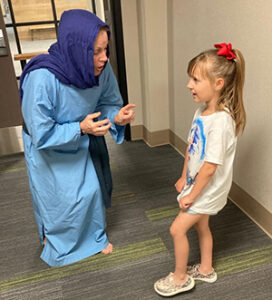


 Curious about how emerging technologies—especially AI—are shaping the church today and in the future? Truett Theological Seminary, in partnership with Baylor University Libraries and the Baylor School of Engineering & Computer Science, invites Texas Baptists to engage in this crucial conversation at the AI and the Church Conference on May 5.
Curious about how emerging technologies—especially AI—are shaping the church today and in the future? Truett Theological Seminary, in partnership with Baylor University Libraries and the Baylor School of Engineering & Computer Science, invites Texas Baptists to engage in this crucial conversation at the AI and the Church Conference on May 5. 
